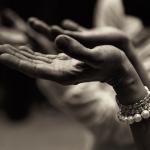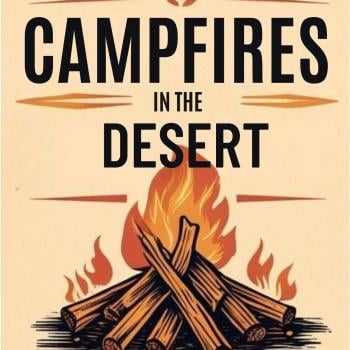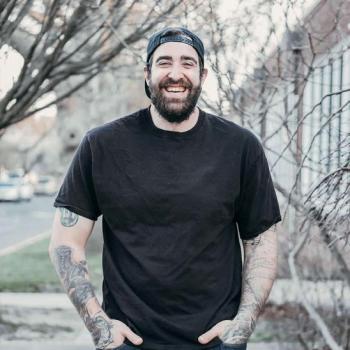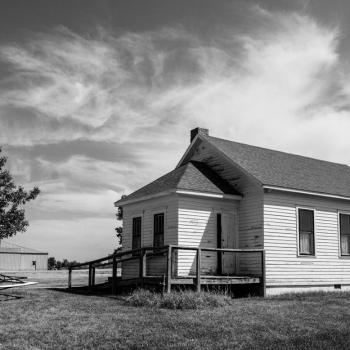
I’m not an expert at mental health issues, but I do know that anger is a very normal emotion. I know that it can be excessive and know that it can lead to other things, but it is also necessary sometimes when we see injustice and abuse in the world.
I often use the illustration that if a neighboring school system was routinely doing things that were damaging to children, I would be upset about it. The excuse that our school in our town is not abusing children doesn’t mean I shouldn’t care about those that are.
When I hear stories about trauma and organized religion, it’s the excuses that make me angry. The actual abuse makes me sad. I know that these religious institutions didn’t set out to harm people, but now they are and I want them to take a step back and do an honest assessment of the systemic issues in organized religion.
I don’t want them to compare themselves to the church down the road because we have been doing that for some 1500 years since Constantine set up the system. It does no good to deconstruct and then reconstruct into another broken system.
Here’s the way I see the problem.
1. There is blatant abuse.
The Catholic Church and the Southern Baptist Convention have pretty much demonstrated this issue. I’m not naive enough to believe that it’s only them. Hierarchy enables this problem because we are forced to trust the “special” people. Among the evangelical churches and leaders, it is so common that it almost seems normal. Just like school shootings, we get numb to the reports of sexual and other types of abuse.
When confronted, there is cover up and victim shaming. But also, denominations claim that their churches are autonomous when it is convenient for them to do so. Churches often use forgiveness and unconditional love as weapons against the victims, forcing them to let the abuser off the hook.
If you’re going to be a Christian, please remove this power from a select few. In reality, they are normal people and Jesus never gave any indication that we should have power structures within religious organizations, or even have religious organizations for that matter.
2. There are toxic beliefs.
Where do I start with this one? Belief in eternal conscious torment and believe that we are inherently bad leads to all kinds of problems. Because we were taught not to trust ourself in that we are essentially worms, others abuse their power over us and we don’t stand up for our intuition and our gut feelings.
Even when people migrate to a more accepting version of Christianity, there’s still indoctrination of some of these toxic beliefs. Confirmation processes and baptism of children exposes children not only to only one world view, but usually a specific version of a specific worldview and belief system.
Most of all, religious systems enable the process of othering. Even when they are a kinder version of Christianity, it still usually boils down to common enemy intimacy (we all hate the same people).
You are good, you can trust yourself, you don’t need others to orchestrate your spiritual life. Let’s begin with that!
3. There are systemic problems.
In general most of the energy and money in the typical church is directed towards building expenses, salaries, the “show,” and attracting new members. There’s very little time left for people’s grief or emotional issues. Questions are generally discouraged, especially during rehearsed services.
Although it may be the intent of religious organizations to address our trauma, they rarely have the time or ability to do so.
They generally present one “special” person to address the rest of us from an elevated platform. The music and singing is orchestrated to alter our emotions which creates low grade addictions and a codependency. We feel we need to get “fed” and we were taught that only special people can prepare the meal.
I also believe that creeds and beliefs statements are a systemic problem. We think we need these to have stability, but really it’s more about control. When we adopt a creed, we stop thinking and we start defending. It all contributes to the otherizing and fear and control that churches are known for.
Laura and I hear stories every day about people that have real PTSD from their religious experiences. If you don’t care about that, then I can’t force you to care and I’ll try not to be angry with you. But I remain disturbed by how ineffective organized religion has become.
We wrote our book, Out into the Desert, to honestly evaluate organized religion in the 21st century. It was for us initially, and then we decided to share with others.
Now, the question might be “Does Christianity need to be reimagined, or are we living in a post christian world?” To investigate that, you night want to investigate Maria Francesca French and her new book Safer Than the Known Way.
Please don’t tell me how your church is different, if it really is and it doesn’t foster any of these tendencies, then congratulations! But that still doesn’t mean that we should not care about the other 99% that are part of the problem. There IS still a problem.
Being angry occasionally disturbs my peace, but it doesn’t keep me from generally being present and authentic, and it urges me to speak up when I might rather be quiet. It causes me to think deeply about things that matter and which direction I’m going.
When Jung wrote about the giant turd that smashed the cathedral, I don’t think he was bashing the church–I think he was critiquing the church. In the same way I believe that I am not persecuting the church, I’m simply holding it up for review.
Jim Palmer and I also had a discussion about this on The Desert Sanctuary podcast. Look for it in a couple of weeks.
Be where you are,
Be who you are.
Be at peace,
Karl Forehand
Photo by Pixabay













